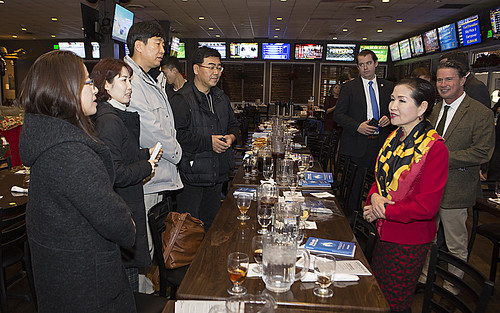U.S. Tries and Fails to Seat Ukraine’s First Lady Near Navalny’s Widow at SOTU
First Lady #FirstLady

An attempt by the Biden administration to have Ukraine’s first lady sit near the widow of Russian dissident Alexei Navalny for a show of unity at Thursday’s State of the Union address has failed miserably.
After The Washington Post reported late Tuesday that the idea of Olena Zelenska sitting near Yulia Navalnaya caused “discomfort” for Kyiv, the Ukrainian presidential administration on Wednesday said Zelenska simply had prior commitments.
“Due to planned events in the schedule, including a visit to Kyiv by children from an orphanage, which was planned in advance, unfortunately, the first lady will not be able to take part in the event,” the administration was quoted as telling the BBC’s Ukrainian service.
Navalnaya, who is working to keep her late husband’s opposition activities going after he died suddenly in a remote Arctic penal colony last month, has also declined the invitation. Kira Yarmysh, a spokesperson for Navalnaya, said she had “considered going” but needed time to recover from a whirlwind of chaotic events in the past few weeks.
“Yulia’s husband died two weeks ago. She’s been traveling all this time. Today is the first day she’s been home at all. Like any human being, she needs time to recover, and so while she very much appreciates the invitation, she needs to recover at least a little now,” Yarmysh was quoted as telling the Post.
Unnamed sources cited by the Post said Navalnaya’s potential presence wasn’t the only factor in Kyiv’s decision and that there was also the issue of Ukrainian President Volodymyr Zelensky being seen as too close to President Joe Biden at a time when Kyiv is seeking support for further aid from House Republicans.
But since the start of the full-scale war against Ukraine in February 2022, most Ukrainians have scoffed at the notion that Kyiv should join forces with the Russian opposition, arguing that placing the two side by side only perpetuates Moscow’s imperialistic ideas and strips Ukraine of its own identity.
Perhaps more importantly, Navalny’s controversial comments on Crimea after Moscow violently seized it in 2014 made many Ukrainians see him as essentially no different than the Kremlin. Although he spoke out against the takeover of the peninsula and Russia’s war against Ukraine, also calling for a return of Ukraine’s 1991 borders, he said in a 2014 interview that Crimea “now de facto belongs to Russia” and will most likely “remain part of Russia.”
Read more at The Daily Beast.
Get the Daily Beast’s biggest scoops and scandals delivered right to your inbox. Sign up now.
Stay informed and gain unlimited access to the Daily Beast’s unmatched reporting. Subscribe now.